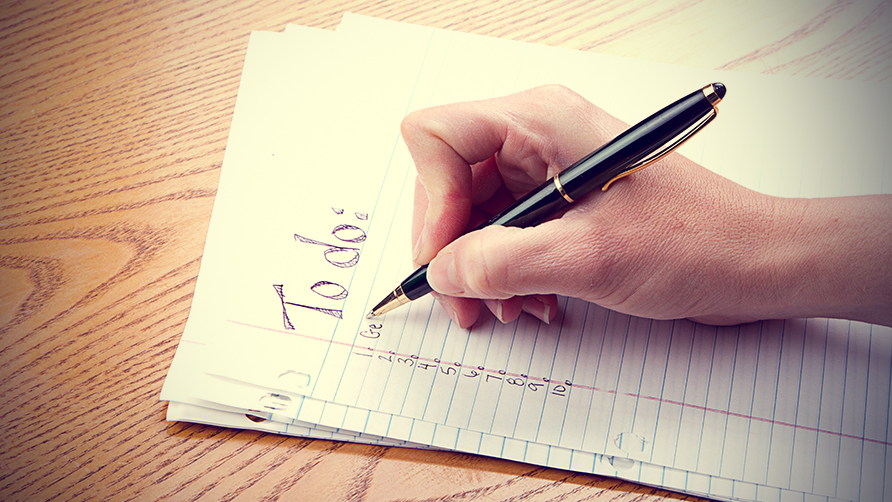You may think that writing a long list of things you need to achieve would be counterintuitive to a good night’s sleep but Clinical Psychologist, Kathryn Smith, thinks not.
“Many people find when they have a lot on their plate that writing a list before bed helps to mentally compartmentalise; an action plan of sorts. So rather than worrying all night about what you have to achieve the next day, writing a list helps many people feel more in control”.
Kathryn Smith, who facilitates a long-standing insomnia program, called Towards Better Sleep, knows a thing or two about the psychology of sleep and it turns out our behaviour during the day has a lot to answer for.
“We live in a society that is busy with high expectations of what one should accomplish in a day. Our daily to do list is constantly expanding to incorporate all facets of work and home life. We are bombarded with emails, text messages, social media alerts and phone calls and by the end of the day, one’s head can be left spinning. With minimal down time in a day’s work, it’s little wonder, sleep can be disturbed” says Kathryn.
But obviously, writing a list is not the only remedy for a good night’s sleep. Here are Kathryn’s top tips for a better night’s sleep:
- Stop focusing on the night and start focusing on the day
As afore mentioned, if your day is manic with no down time, chances are you are going to be hyped up and over-stimulated. Taking time for yourself and being mindful of not taking on too much will go a long way in the sleep stakes.
- Don’t worry during the day about how much sleep you are going to get at night
Often people experiencing insomnia worry about how much sleep they are going to get that night, usually because they are tired and overwrought. As hard as it may be to switch off the worry button, try to distract yourself from this thought as it only increases anxiety levels and exasperates the problem.
- Put down the phone!
All the research points to devices and the blue/green light they omit, as major sleep inhibitors. Shutting down your phone, ipad or laptop within a few hours of sleep is best for sleep health.
- Get plenty of exercise but not too close to bedtime
There is no greater way to let off some steam and get your muscles moving than exercise. Whether it’s before or after work, exercise will improve your sleep, just not within 2 hours of bedtime.
- Avoid caffeine after 2pm and limit alcohol consumption– both are sleep disruptors.
If you like this article and would like to read more, why not join our mailing list to receive our bi-monthly newsletter: Mental Note: email [email protected]
